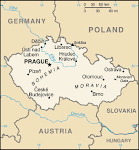
A follow-up article by Michael Schwirtz (12/16/2008) of The New York Times to an analysis posted in August on Israeli-made UAVs, but this time concerning Russian acquisition.
MOSCOW - Russia is considering buying an unspecified number of remotely piloted reconnaissance aircraft from Israel, the head of the Russian military said Tuesday, in what may be an attempt by the Kremlin to strengthen its intelligence-gathering capacity following the August war with Georgia.
A Russian purchase of such aircraft from Israel would be a significant expansion of military business between the countries.
“We are working on this issue,” Gen. Nikolai Makarov, the chief of the Russian General Staff, told the Interfax news agency. “We are talking about a test batch of Israeli drone planes."
In recent months, the Russian Defense Ministry has unveiled sweeping changes aimed at streamlining the armed forces. The changes include thinning the officer corps, improving training and living standards for troops, and buying modern weapons systems.
Talk of the purchase was probably prompted by intelligence-gathering failures by the Russian military during the August war with Georgia, a country that already has Israeli-made spy aircraft, said Aleksandr Golts, an independent Russian military analyst.
"The war in Georgia showed us that we are frightfully lagging behind in terms of technical reconnaissance," Mr. Golts said. “There were many failures of intelligence.”
Russia has been unable to develop its own pilotless spy plane, though it had clear military dominance in the conflict, which lasted five days and severely weakened the Georgian military. Still, Georgia made effective use of Israeli-made spy aircraft in two Russian-backed Georgian separatist regions before the August conflict, angering Moscow. Last April, an Israeli-built Hermes 450 reconnaissance plane operated by Georgia was shot down over Abkhazia, one of the separatist Georgian regions. A United Nations report later concluded that a Russian fighter jet destroyed the aircraft. The episode contributed to escalating tensions that precipitated the conflict.
Moscow convinced the Israeli government to cut off sales of military equipment to Georgia just days before Georgia’s government ordered an artillery bombardment of the separatist enclave of South Ossetia on Aug. 7. That bombardment, independent military observers have said, sparked the war.
Russia has bought military-related electronic systems and other hardware from Israel before, Mr. Golts said, but buying the remotely piloted planes would raise Russian-Israeli weapons trade to a new level.
The negotiations concerning the spy planes are happening against a backdrop of strong Israeli objections to a possible sale by Moscow of advanced antiaircraft systems to Iran and Syria, two vocal adversaries of Israel.























